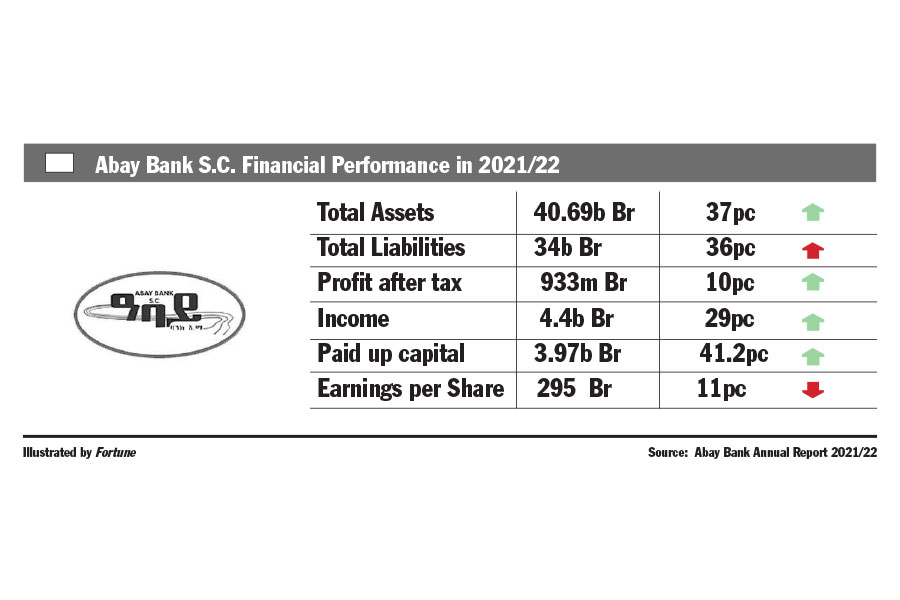
Fortune News | Mar 18,2023
Jul 2 , 2022
By Christian Tesfaye
What a time it is to be a central bank! Not since the 1980s has the world seen such a perfect storm of shocks that the way out of inflation seems as painful as the inflation itself. It was historic how the world escaped (especially advanced economies) from a potential economic calamity of lockdowns using monetary and fiscal expansion. But the bills are due, and combined with a food and energy crisis, it is unlikely that central banks will be able to address it without inducing a recession and possibly creating stagflation.
It is ironic that central banks around the world pumped so much money into their economies to avoid depression and are now trying to ease inflationary pressure by inducing economic slowdown or recession.
Few countries face this dilemma more urgently than low-income countries (no surprises there) and it is nowhere more bizarre than in Zimbabwe. The currency volatility the country is known for is infamous. It has changed official currencies several times (the last one in 2019), had to print a 100 trillion dollar note at one time, and has been dealing with dollarisation. Having taken such a beating, the central bank has had it. It is bringing to bear all the weapons in its arsenal against its sworn enemy, inflation. Its tactics are unprecedented.
Zimbabwe’s inflation rate for June was 198pc, one of the highest in the world. Typically, this is a story by itself but there was something more astounding this time. The news here was the central bank’s decision to put everything on the table by hiking the lending rate to 200pc, from its previous 80pc. The debate in the US is that the Federal Reserve is risking recession by increasing key rates by 0.75pc. Zimbabwe went for a 140pc rise. Even inflation hawks Paul Volcker and Larry Summers will be astounded at the sheer aggressiveness.
This is not all. Deposit interest rates tripled to 40pc and the central bank legalised the dollar, approving the dollarisation of its economy. Zimbabwe’s central bank is also introducing gold coins to serve as a store of value (one of the main functions of money), having partly given up on fiat money.
It is not just Zimbabwe. Other economies are being affected in bizarre ways and their central banks are responding in novel ways. Enter Japan. One of the most influential economists of the 20th century, Simon Kuznets, is claimed to have said that there are four types of economies in the world: developed, undeveloped, Argentina and Japan. The current state of Japan’s economy is trying to live up to the name.
The central bank of the country is one of the few still conducting quantitative easing, where the central bank buys treasury securities usually by printing money. Arguably, it does not want to continue doing this because it is depreciating the yen against the dollar (whereas the Federal Reserve is following the opposite policy). But the central bank has to continue buying government bonds because the yields on the securities will otherwise rise. This would have been an acceptable risk. For Japan, which has a debt-to-GDP ratio of a mind-numbing 262pc, the more expensive interest rates become, the harder it is to roll over debt and the more debt-stressed the country.
Somehow, as the yen drops in value, interest rates remain negative and Japan (a net energy importer) faces higher oil prices, inflation is still at one percent. Japan exists in a separate dimension where the usual laws of macroeconomics do not apply to it. Unfortunately, it also makes it impossible for the central bank to follow sound monetary policy.
Ethiopia can learn a great deal from this. Structural problems need to be addressed now rather than later. Zimbabwe and Japan are in a bind when it comes to monetary policy management. One of them because of money printing, and the other as a result of debt that is approaching triple their economy. Ethiopia is not there yet. Headaches related to inflation and debt stress can be significantly alleviated by following rational monetary policy and improving foreign exchange reserves. But the country needs to make the hard choices when it comes to capital controls and exchange rate flexibility now rather than later.
PUBLISHED ON
Jul 02,2022 [ VOL
23 , NO
1157]


Fortune News | Mar 18,2023

Radar | May 28,2022

Radar | May 28,2022

Fortune News | Nov 03,2024

Fortune News | Apr 03,2021

Fortune News | Dec 04,2021

Agenda | Apr 13,2024

Fortune News | Mar 09,2024

Fortune News | Apr 06,2019

Fortune News | Jul 09,2022

Photo Gallery | 177190 Views | May 06,2019

Photo Gallery | 167401 Views | Apr 26,2019

Photo Gallery | 158025 Views | Oct 06,2021

My Opinion | 136967 Views | Aug 14,2021
Commentaries | Oct 25,2025

Dec 22 , 2024 . By TIZITA SHEWAFERAW
Charged with transforming colossal state-owned enterprises into modern and competitiv...

Aug 18 , 2024 . By AKSAH ITALO
Although predictable Yonas Zerihun's job in the ride-hailing service is not immune to...

Jul 28 , 2024 . By TIZITA SHEWAFERAW
Unhabitual, perhaps too many, Samuel Gebreyohannes, 38, used to occasionally enjoy a couple of beers at breakfast. However, he recently swit...

Jul 13 , 2024 . By AKSAH ITALO
Investors who rely on tractors, trucks, and field vehicles for commuting, transporting commodities, and f...

Oct 25 , 2025
The regulatory machinery is on overdrive. In only two years, no fewer than 35 new pro...

Oct 18 , 2025
The political establishment, notably the ruling party and its top brass, has become p...

Oct 11 , 2025
Ladislas Farago, a roving Associated Press (AP) correspondent, arrived in Ethiopia in...

Oct 4 , 2025
Eyob Tekalegn (PhD) had been in the Governor's chair for only weeks when, on Septembe...

Oct 25 , 2025 . By YITBAREK GETACHEW
Officials of the Addis Abeba's Education Bureau have embarked on an ambitious experim...

Oct 26 , 2025 . By YITBAREK GETACHEW
The federal government is making a landmark shift in its investment incentive regime...

Oct 26 , 2025 . By NAHOM AYELE
The National Bank of Ethiopia (NBE) is preparing to issue a directive that will funda...

Oct 26 , 2025 . By SURAFEL MULUGETA
A community of booksellers shadowing the Ethiopian National Theatre has been jolted b...